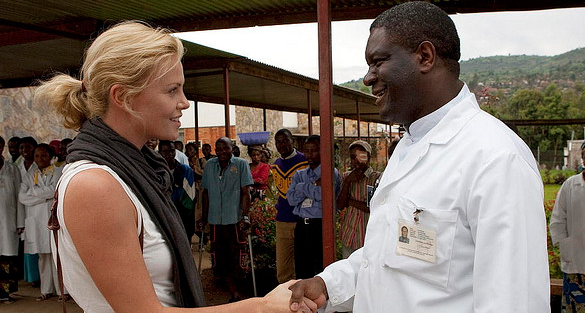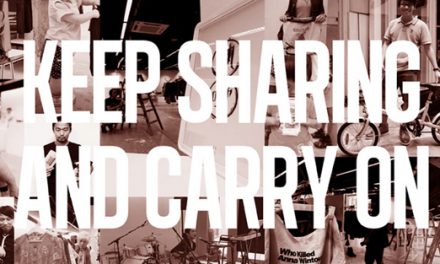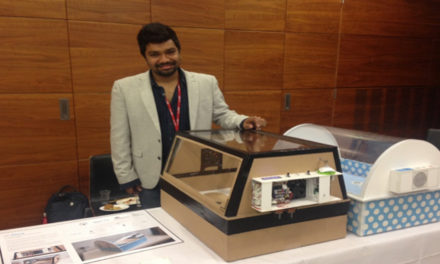About the photo: Hollywood actress Charlize Theron (left), United Nations Messenger of Peace, is greeted by Dr. Denis Mukwege
Denis Mukwege: The rape surgeon of DR Congo
Denis Mukwege is a gynaecologist working in the Democratic Republic of Congo. He and his colleagues have treated about 30,000 rape victims, developing great expertise in the treatment of serious sexual injuries. His story includes disturbing accounts of rape as a weapon of war.
When war broke out, 35 patients in my hospital in Lemera in eastern DR Congo were killed in their beds.
I fled to Bukavu, 100km (60 miles) to the north, and started a hospital made from tents. I built a maternity ward with an operating theatre. In 1998, everything was destroyed again. So, I started all over again in 1999.
It was that year that our first rape victim was brought into the hospital. After being raped, bullets had been fired into her genitals and thighs.
I thought that was a barbaric act of war, but the real shock came three months later. Forty-five women came to us with the same story, they were all saying: “People came into my village and raped me, tortured me.”
Other women came to us with burns. They said that after they had been raped chemicals had been poured on their genitals.
I started to ask myself what was going on. These weren’t just violent acts of war, but part of a strategy. You had situations where multiple people were raped at the same time, publicly – a whole village might be raped during the night. In doing this, they hurt not just the victims but the whole community, which they force to watch.
The result of this strategy is that people are forced to flee their villages, abandon their fields, their resources, everything. It’s very effective.
We have a staged system of care for victims. Before I undertake a big operation we start with a psychological examination. I need to know if they have enough resilience to withstand surgery.
Then we move to the next stage, which might consist of an operation or just medical care. And the following stage is socio-economic care – most of these patients arrive with nothing, no clothes even.
We have to feed them, we have to take care of them. After we discharge them they will be vulnerable again if they’re not able to sustain their own lives. So we have to assist them on socio-economical level – for example through helping women develop new skills and putting girls back in school.
The fourth stage is to assist them on a legal level. Often the patients know who their assailants were and we have lawyers who help them bring their cases to court.
In 2011, we witnessed a fall in the number of cases. We thought perhaps we were approaching the end of the terrible situation for women in the Congo. But since last year, when the war resumed, cases have increased again. It’s a phenomenon which is linked entirely to the war situation.
The conflict in DR Congo is not between groups of religious fanatics. Nor is it a conflict between states. This is a conflict caused by economic interests – and it is being waged by destroying Congolese women.
Source: BBC
Photo: United Nations Photo










